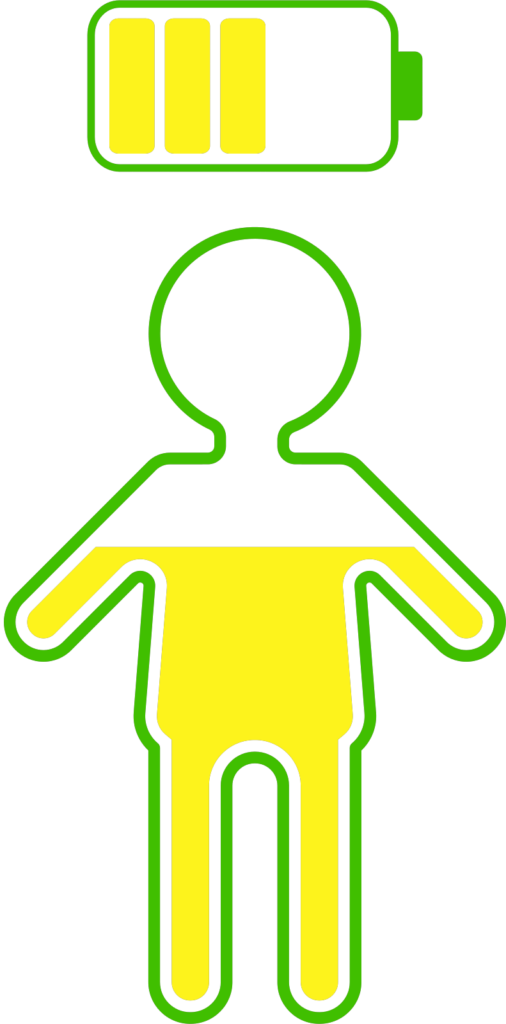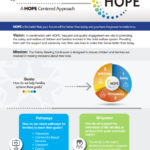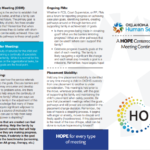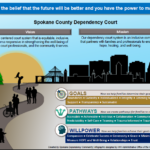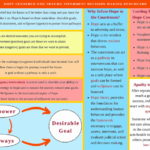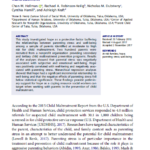
HOPE
What is the Science of Hope?
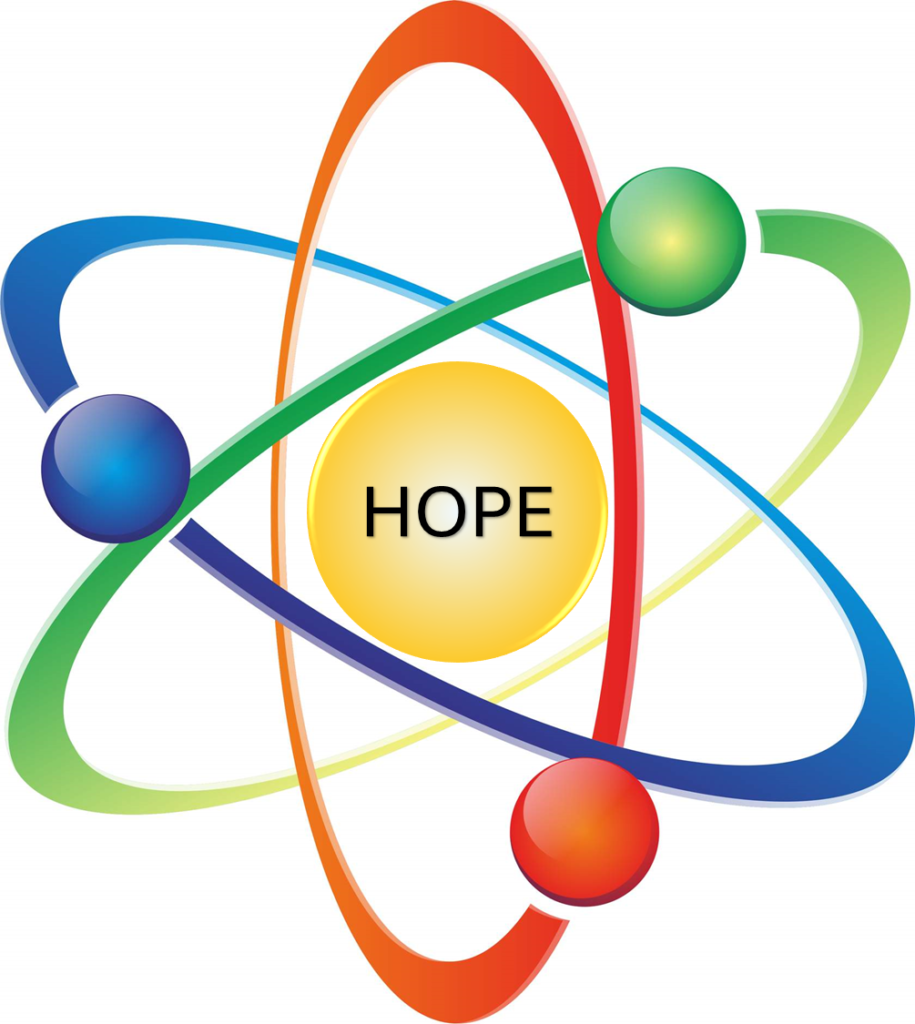
The “science of hope” is a field of study that focuses on how fostering hope can lead to improved mental, emotional, and physical well-being. It’s based on research showing that hope is more than just an emotion. It’s a measurable and teachable mindset that can help people set goals, find ways to achieve them, and maintain the motivation to reach those goals, even in the face of challenges.

Elements of Hope Science
“The science of hope is a framework for action and well-being is the outcome.”
“The science of hope teaches goal setting, pathway identification, and motivation; helping individuals overcome adversity and achieve a positive future.”

Hope is Essential for Dependency Courts
For some, facing hardship or challenges may diminish hope, leading to feelings of helplessness, discouragement, or despair. When individuals experience repeated setbacks or difficult circumstances, especially over a long period of time, they may feel that their ability to change their situation is limited, which can erode their sense of hope.
The science of hope is especially important for people who have experienced adversity because it provides a framework to regain control over their lives, build resilience, and foster healing.
When families go through the child removal and court processes, it can be really hard for everyone—families, professionals, and the community. These difficult experiences can make people feel like giving up. But when we use hope during these times, things can improve.
Hope helps families and professionals think about their goals and how to reach them. As they work toward their goals, they feel more motivated and confident to keep going. Hope grows when everyone can clearly see their goals, the steps to get there, and their own confidence building along the way.
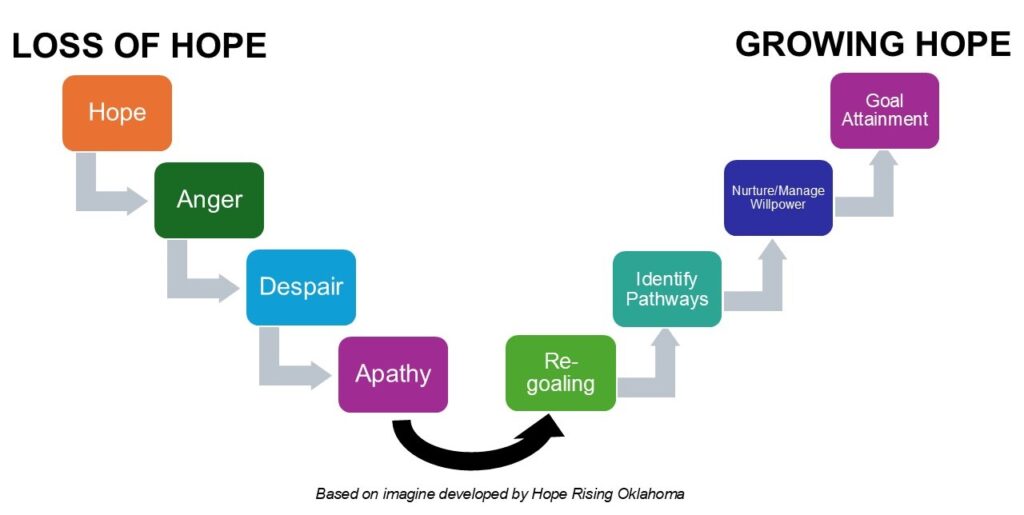
“In a dependency case, where emotions run high and stakes are critical, hope offers a path to helping individuals focus on positive change and the possibility of a better outcome for themselves and their children.”

Creating a Hope-Centered Court Community

In addition to working at the individual level, the science of hope can positively impact organizations and systems.
Collective hope means everyone in the organization works together toward shared goals, finds ways to achieve them, and stays motivated. This is important for keeping workers happy and healthy. Collective hope also creates a positive work environment, improves planning, and helps the organization succeed. It can also be used in daily services to help staff provide better support.
A hope-centered organization focuses on values, policies, practices, and structures that bring hope to both staff and clients. This approach has been shown to reduce burnout, stress, and employee turnover. When leaders nurture collective hope, studies show that workers are more satisfied with their jobs, more committed to the organization, and feel better overall.
Goal
The goal of the Hope-Centered Dependency Court Community is to create a space where everyone feels supported, understood, and valued, with a focus on overall well-being.
Our community works together to bring hope and positive change, making sure that every person can thrive.
Pathways
AWARENESS
- Education
- Hope Events
- Webinars
- HOPE Community of Practice
NAVIGATION
- WA Navigators
- Project Information & Examples
- Monthly Updates
- Navigator Community of Practice Sessions
- Project Planning Sessions
LEADERSHIP
- Resilient Courts (TBA)
- Administrative work (court Admin)
- Partnership with Dr. Freeze
- Court Culture

Hope Science Research & Resources



